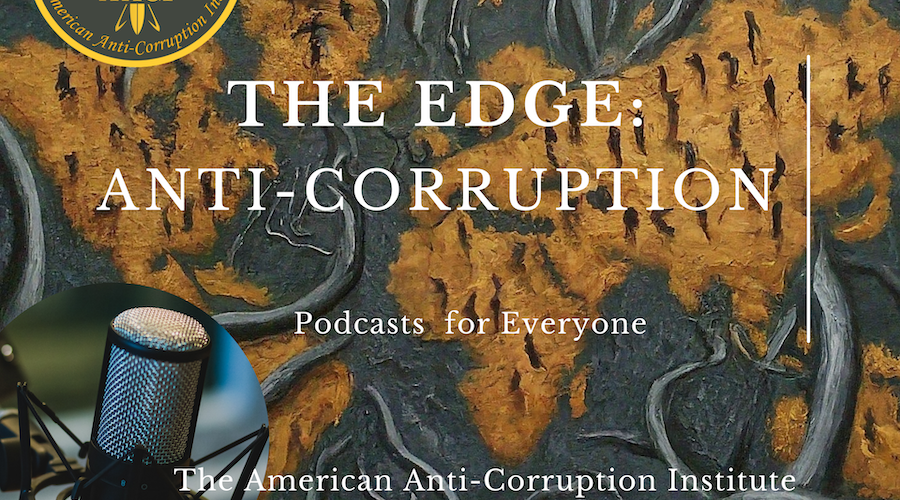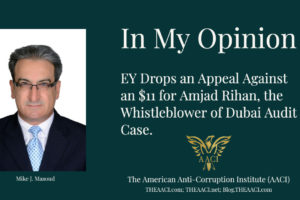Technical staff, May 14, 2024
Welcome to “The Edge: Anti-Corruption” podcast series, brought to you by The American Anti-Corruption Institute (AACI). Our podcasts are designed to empower leaders and management within organizations to tackle fraud and corruption head-on. Today is May 14, 2024, and we’re delving into what a company’s owner should do if he suspects fraud at his company.
As a business owner, suspecting fraud within your company can be a daunting experience. The line between suspicion and confirmation of fraud is crucial, and your actions during this phase can significantly impact the outcome. Let’s explore the steps you should take when faced with such a situation.
Firstly, it’s important to distinguish between suspected fraud and actual fraud. If you have solid evidence indicating actual fraud, your first course of action should be to contact your legal advisor immediately. They will guide you on the appropriate steps to take, ensuring that your actions are legally sound and that you are prepared for any legal ramifications.
When suspecting fraud, it’s also vital to consider who might be involved. If senior management is suspected, the issue becomes material regardless of the fraud’s scale. The involvement of top executives could indicate deeper systemic issues within your company’s operations.
Next, handling the evidential matter with diligence is essential. This becomes particularly critical when technology is involved. Properly preserving and documenting evidence can prevent its destruction or tampering, which is pivotal for any legal proceedings or internal investigations.
At this point, engaging a Certified Fraud Examiner (CFE) can provide invaluable support. While suspicions alone are insufficient for reporting to authorities, a CFE can help substantiate your claims with proper evidence. Collaborating with your legal advisor and anti-corruption expert, they can determine if fraud is indeed present and advise on when to contact the relevant authorities.
Swift yet prudent action is crucial. Delaying your response can exacerbate the issue, giving perpetrators time to cover their tracks. However, you must maintain a low profile during the investigation to prevent alerting the culprits and allowing them to dispose of any incriminating evidence.
Your Certified Public Accountant (CPA) should also be consulted to identify any weaknesses in your internal controls that may have facilitated the fraud. Strengthening these controls can prevent future occurrences and restore stakeholder confidence in your company’s operations.
If the suspicion or discovery of fraud originated from a whistleblower tip, it’s imperative to publicly acknowledge and thank the whistleblower. Ensure their protection from retaliation, as this will encourage a culture of transparency and integrity within your organization.
Finally, use this incident as an opportunity to reinforce and reenergize your company’s culture. A resilient culture that does not tolerate corrupt behavior is critical. As a business owner, you set the tone for your company’s ethical standards. Demonstrating a zero-tolerance policy towards bribery and corruption will ensure that your employees follow suit.
In conclusion, facing suspected fraud in your company requires a balanced approach of urgency and caution. By following these steps, you can navigate the complexities of such situations effectively, protecting your company’s integrity and future.
Thank you for tuning in to “The Edge: Anti-Corruption.” Stay vigilant, and remember that combating fraud is not just a legal obligation but a cornerstone of good governance and ethical leadership.
This concludes today’s episode. We hope you found it insightful and actionable. For more resources and guidance on anti-corruption measures, visit our website at blog.theaaci.com. Until next time, this is “The Edge: Anti-Corruption,” empowering you to lead with integrity.











































